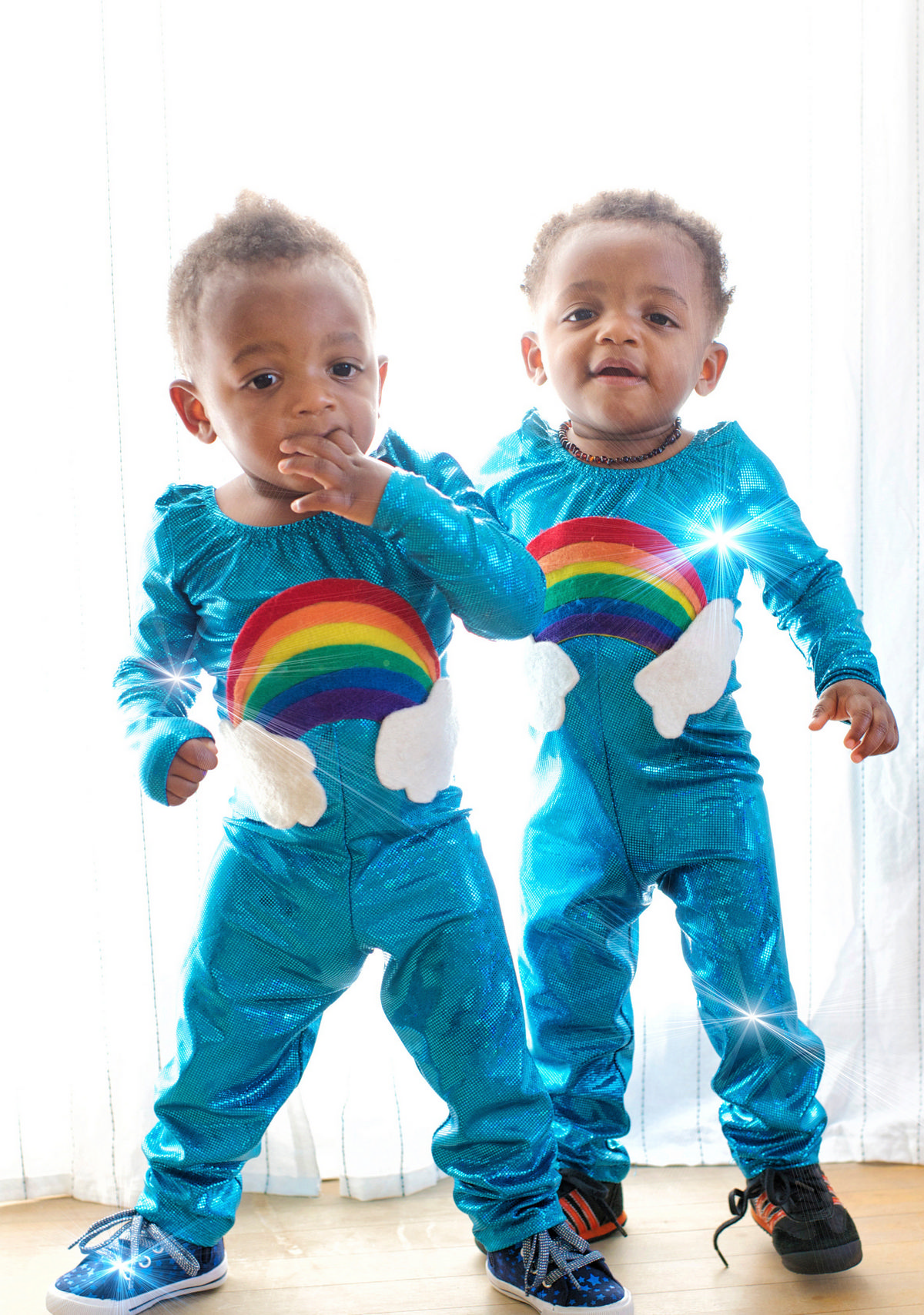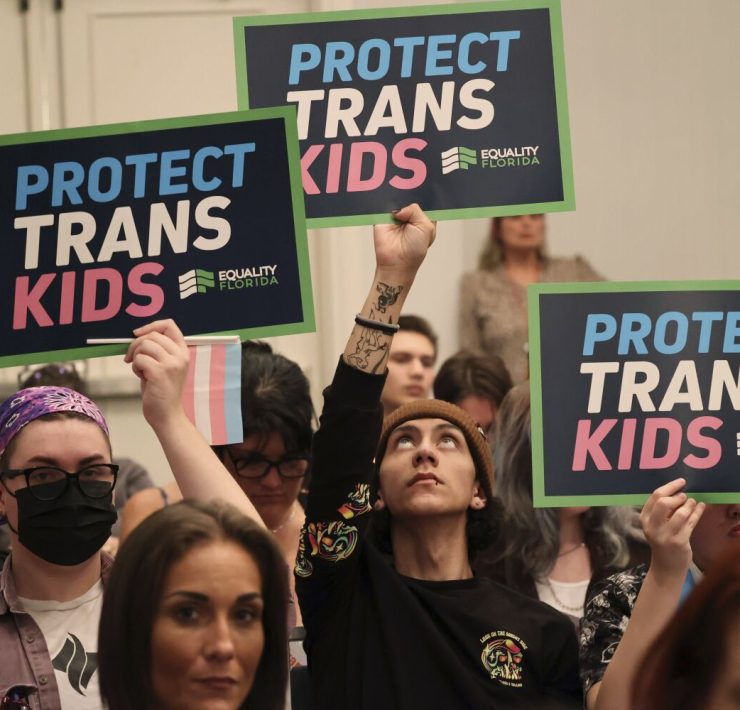Weighing Our Options: Queer Family Planning

Intersectionality, accessibility, and squashing the sexist, patriarchal norms through queer…
When folks decide they are ready to expand their families, there are some key issues to consider. From balancing finances to job flexibility and time off, even current home and neighborhood situations, a lot must be weighed before an individual or couple are ready to add children into the fold. Yet, for queer families, the list of things to examine grows significantly, and starts in places that many hetero-normative families may never even have to consider.
In order to grow a family genetically, queer folks often begin at a natural deficit and are thrust into a world of navigating through technology and medicine, and the options can feel overwhelming. However, places like CCRM Fertility and IVF clinic specialize in helping LGBTQ families maneuver through the uncertain seas of possibilities.
CCRM is a network of scientists and doctors who specialize in the realm of intrauterine insemination (IUI), in vitro fertilization (IVF), and other reproductive technologies. With three locations in Colorado and 11 across the nation, CCRM’s mission is to help families experience the joy of having children. When it comes to working with LGBTQ folks, CCRM is committed to being a leader in inclusive fertility healthcare.
“All of our employees are undergoing training to really understand the unique journey and situation about LGBTQ individuals and couples, so that we can provide them the support that they need as they’re building they’re families,” said Jordan Peel, CCRM’s PR and content manager.
“Building a family is emotional and difficult anyway, and it’s just another layer; it’s our goal to make the process as easy as possible.”
The first step for people is overcoming the large learning curve when it comes to the process of how reproductive science actually works. Alongside education in what options are available for same-gender and transgender couples, deciding what direction is best suited for each unique family is a journey in itself.
For gay, cisgender men, the first consideration is actually two-fold. The choice of an egg donor, in addition to a gestational carrier, are equally necessary in getting started. For lesbian couples, the decision of whose egg to use, if either, must be decided as well as who in the couple is the best choice to carry, if either. For couples who have a trans-identifying person, all of those options may be available or completely unavailable, which is identified within the first few rounds of consultations and appointments.
Terms like embryo, sperm washing, and insemination can be thrown around and feel rather intimidating to discuss with a total stranger, especially for those who identify as LGBTQ. Most queer people can attest to having faced some kind of discrimination or uncomfortability around healthcare providers; however, CCRM encourages LGBTQ couples to ask questions and discuss these things without fear of judgement or prejudice.
Right here in Colorado, Family Equality has partnered with One Colorado in compiling an LGBTQ Family Law Guide, a resource providing detailed information on the current status of queer family’s rights throughout the state. From relationship recognition to children and parentage laws, as well as non-discrimination protections and recommended legal documents for same-gender couples, there are a lot of protections that currently exist to ensure LGBTQ families are treated fairly and equally.
When it comes to family building, the Family Equity website is full of information and resources that help queer folks prepare for a lot of what their options are and what they can expect if pursuing in vitro fertilization, surrogate pregnancy, and other reproductive medicine routes.
For CCRM, investing in reproductive medicine through new, proprietary technologies and scientific techniques has resulted in more than 50,000 babies being born through their fertility options. Additionally, they have a 97 percent satisfaction rate among their patients, and they have a faster success rate at 1.2 IVF cycles to get pregnant versus the national clinic average at 1.6 cycles.
For couples like Mark and Tony Delisa-Ludwig, the biological option was the route they wanted to take in starting their own family-building journey. Tony entered their relationship with a child from a previous relationship, and Mark felt that he wanted to have a biological child as well. After watching an episode of Bill and Guiliana on E! which featured the couple navigating the world of IVF, the Delisa-Ludwig’s discovered CCRM and wondered if there could be an option for them there.
After meeting with CCRM, they began to take steps toward getting ready for their new family. However, Mark encountered roadblocks right off the bat due to being a person in a same-sex marriage. Not only did he go through the process of ensuring his sperm was viable, since he’s a gay man, the FDA required it to be placed on a six-month holding period.
“It’s kind of a let down; it’s not CCRM’s fault, but right away we felt discriminated against,” Mark explained.
Once the Delisa-Ludwig’s were given the go ahead on Mark’s sperm, the couple then began the process of choosing an egg donor and a gestational surrogate.
“It’s kind of an overwhelming process just picking an egg donor, because there’s tons of other couples that come to CCRM for the same purpose,” said Tony. “It was like new donors were released on one day, and they were taken up right away; it was insane.”
Simultaneously, the couple hired a company named ConceiveAbilities to find a gestational carrier for them. Mark and Tony requested someone in-state so they could be a part of the pregnancy and attend doctor’s appointments, so the process was now starting to take longer than they had originally anticipated. Now closing in on nearly two years since they originally sat with CCRM for the initial consultation, the gestational carrier that was found was located in Grand Junction.
Though not ideal, through a combination of in-person meetings and Skype calls, the couple implanted embryos in November 2017 and welcomed their daughter to the family in July of 2018.
While every situation is unique for couples, co-parents, and single parent households, when all are seeking family growth through means of these methods, there is always one common factor: expense. For Mark and Tony, it meant getting a second mortgage on their house to even be able to attempt to have their daughter.
“There is a cost factor, unfortunately. Expense plays into a lot of it when they’re looking at this,” said CCRM physical liaison Kelly Stude. The cost of services can easily reach upwards of more than $100,000 and quickly prices people out of even considering IUI, IVF, and other options.
“I think the biggest barrier is the lack of medical coverage through insurance,” said Dr. Bradford Kolb, MD of HRC Fertility in Pasadena, CA. A top reproductive and infertility expert, Dr. Kolb has received multiple awards and was named “Super Doctor” by Los Angeles Magazine for four consecutive years. As an active researcher and developer of cost-efficient fertility protocols, he has worked closely with the LGBTQ community in ensuring that patients not only receive fair treatment but the best options out there in creating families of their own.
“There’s ways to keep those costs down,” Dr. Kolb explained. He said folks can do so by using family members or friends as sperm donors and surrogates, as well as exploring considerations outside of biological options and the services that even his business offers. However, those also come with their own set of complications.
“There’s certainly other options that our gay patients have: adoption in certain states, co-parenting, and foster parenting,” he said.
“Unfortunately, with the political landscape, that’s not going in a very positive direction for our patients right now.”
For Dr. Kolb, working with his patients not only gives him a sense that his work is significant in the broader landscape, but working with the LGBTQ community gives his life a special meaning.
“I think I’ve got the greatest job in the world to be honest; it’s really cool what I get to do,” he said. “Especially within the gay community of the LGBT community, many of our patients have never thought that they can have children. So I’m in a very special place in life where I get to help people realize these dreams come true. I almost get emotional thinking about it.”
Normalizing biology, that’s what Dr. Kolb said his practice does well. A body is a body; a couple is a couple, and every circumstance that walks in the door is unique regardless of gender expression or sexuality. CCRM’s Stude explained that while LGBTQ couples are unique, some of the challenges they face in getting pregnant fall within the same challenges as the general public.
“The LGBTQ community also faces infertility, and so sometimes that comes as a surprise with family building,” said Stude. “They may need more advanced treatment.”
According to the National Institute of Child Health and Human Development, about 9 percent of men and 11 percent of women of reproductive age experience fertility problems. Fortunately, and unfortunately, nature does not discriminate when it comes to these types of issues for all demographics. In fertility, age does matter, as those numbers continue to creep higher as folks with eggs and a uterus wait later in life to attempt to get pregnant or use their own biology.
If creating a family feels like an uncertain endeavor or something that is far down the road of possibilities, CCRM encourages people to take measures now that can ensure success if and when the time feels right to pursue that.
“We’ve had people in their late teens that have frozen sperm or eggs, and that’s a lot to think about, but we’re hoping there is more awareness around it,” Stude said.
Thinking ahead in this way is also important for trans-identifying people who may not know where their transition journey will lead them. Taking steps before any hormonal additions or medical procedures that alter the body physically gives people more options later on.
“As teenagers are thinking about the future of how they want to transition, they know that they can still have a family of their own. We have patients that have come in and frozen eggs and sperm and then have come back after transitioning and have built their families that way,” she said.
For CCRM and people like Dr. Kolb who work in the field of family planning and fertility, and working with LGBTQ folks, it comes down to fulfilling a dream, and the lasting human connection makes the work worth it every single time.
“It’s special stories of patients that have had particularly difficult journeys, and when they do have success and find their way, it really draws you back in, how special it is, the things that we get to do,” said Dr. Kolb.
What's Your Reaction?
Intersectionality, accessibility, and squashing the sexist, patriarchal norms through queer pearls of wishful wisdom.










